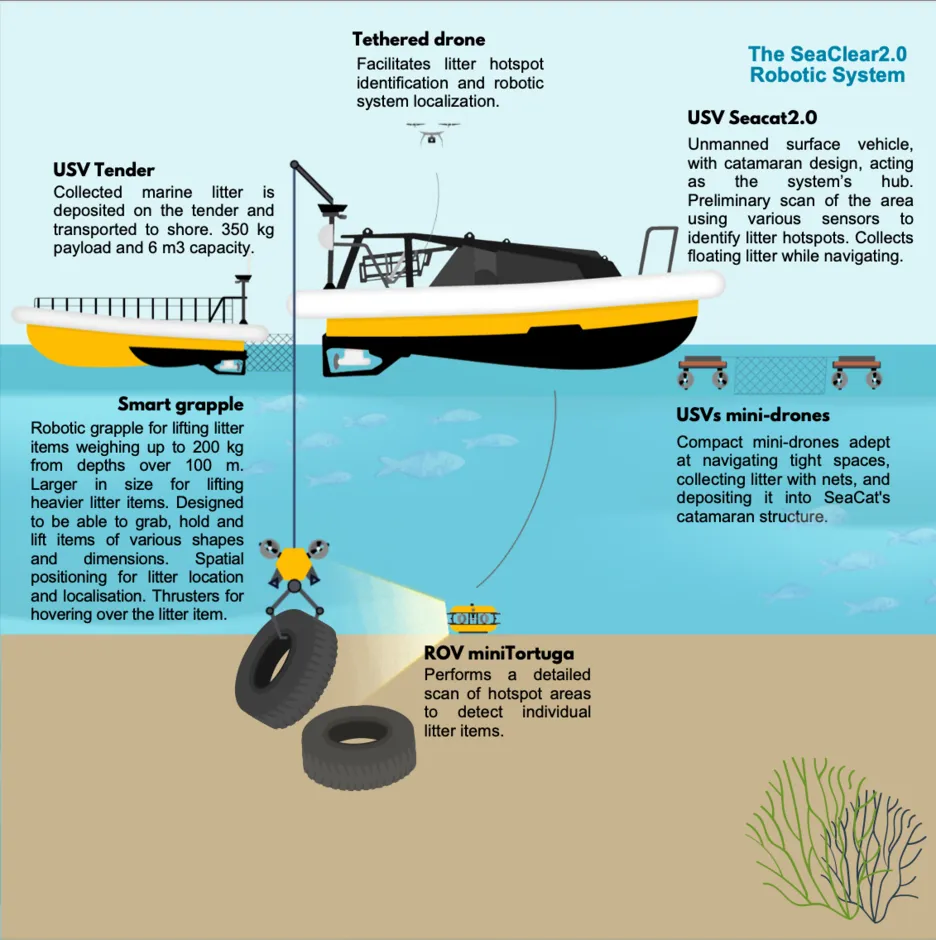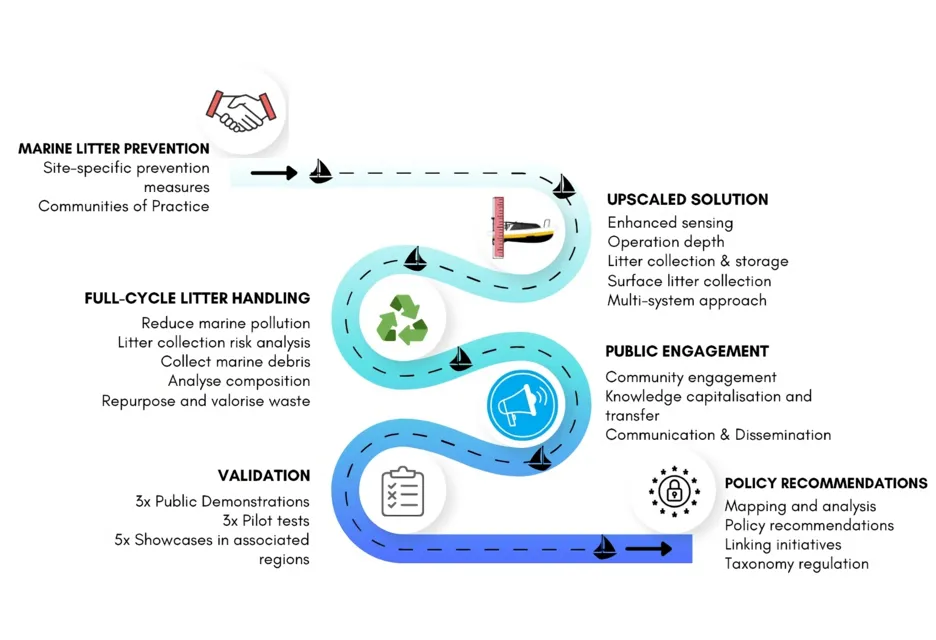SeaClear2.0 (Scalable Full-cycle Marine Litter Remediation in the Mediterranean: Robotic and Participatory Solutions)
Restore our Oceans and Waters
SeaClear2.0 supports the achievement of the EU Mission “Restore our Oceans and Waters” by preventing and eliminating seabed and floating marine pollution. This is achieved through a combination of technological innovation, stakeholder engagement, citizen activation, and contribution to policy-making.
SeaClear2.0 aims to prevent and reduce marine litter pollution, particularly plastics and microplastics, in the Mediterranean through (i) Community activation, (ii) Scaling up and demonstrating an innovative solution with teams of autonomous, intelligent robots for effective monitoring and collection of marine seafloor and surface litter, (iii) Providing solutions for valorization of the collected litter, (iv) Adding novel dimensions in policy making, and (v) Accelerating the uptake of our solution by demonstrating its scalability and replicability to the Mediterranean basin and beyond.

"Building on our success in the SeaClear project, we are developing a more robust system for the surface and deep Mediterranean litter. While a solution does not yet exist in nature, we must innovate solutions ourselves. In addition to robotics, this project focuses on community engagement and policy, with activities like gamified apps and educational programs to curb litter production."
Stefan Sosnowski
Goal of the project
SeaClear2.0 will develop an integrated approach to address the full cycle of marine litter in a way that will help meet the objectives of the Mission to restore, protect and preserve the health of our oceans, seas and waters by 2030, in the context of the Mediterranean sea basin lighthouse of the European Commission.

SeaClear2.0 received €7971863,50 funding from the European Union's Horizon2.6 (Food, Bioeconomy Natural Resources, Agriculture and Environment) programme under Grant agreement ID: 101093822

